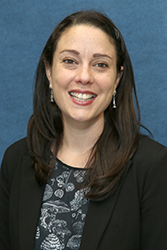
-
A. Peyton Smith
- Associate Professor
Soil Carbon Dynamics - Office:
- Heep 546-547
- Email:
- [email protected]
- Phone:
- 979-321-5943
Education
- Undergraduate Education
- B.S. - Wildland Conservation, University of Washington, 2004
- Graduate Education
- Ph.D. - Soil Science, University of Wisconsin, 2013
- M.S. - Environmental Science, Yale University, 2008
Professional Summary
Specialty: Soil Carbon Dynamics
Research: My research focuses on how physical, biological and chemical processes interact at fine scales (soil aggregate or pore scale) to alter the flow of carbon and nutrients at larger scales (field or landscape scale). I am especially interested in how global change (land use- and climate change) and extreme weather (droughts, floods) alters the soil microbiome and their role in fundamental biogeochemical processes, such as nutrient and soil carbon cycling in both natural and agro-ecosystems. Microorganisms largely determine the fate of organic carbon in soils, as they are the agents controlling the majority of decomposition processes and organic matter transformations. Equally as important, the soil matrix (i.e. the 3D arrangement of particles and pores), ultimately governs those processes and interactions. As such, research in my lab couples organic matter and microbiome characterization with soil physical properties to better understand how molecular, microbial and moisture properties interact with their physical environment to control the stabilization and destabilization of soil carbon.
Google Scholar – Peyton Smith
Students and Support Staff:
Harrison Coker | Jakob Denton | Daisy Gonzalez | Katherine Quinonez‑Gonzalez | Rachel Watters